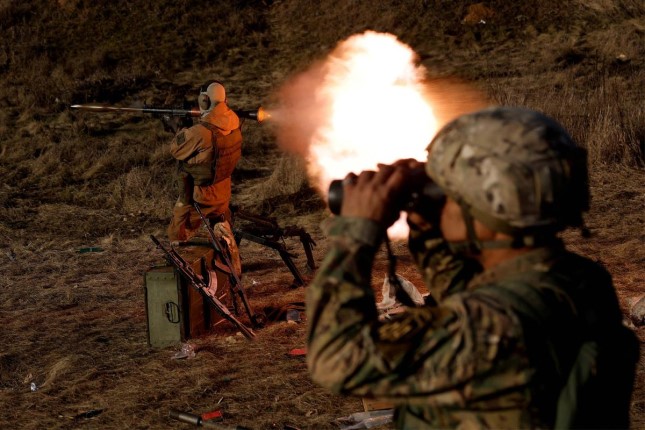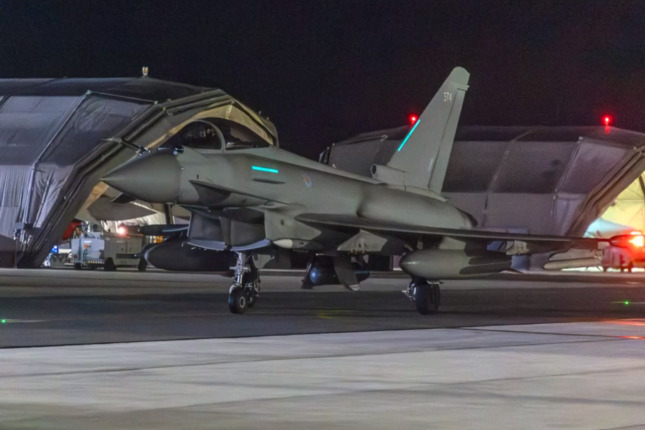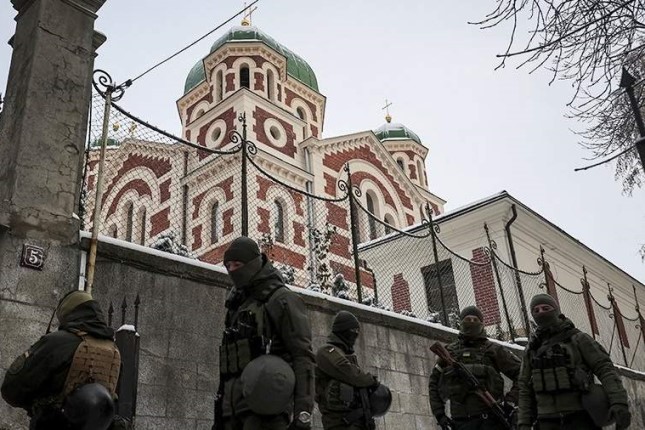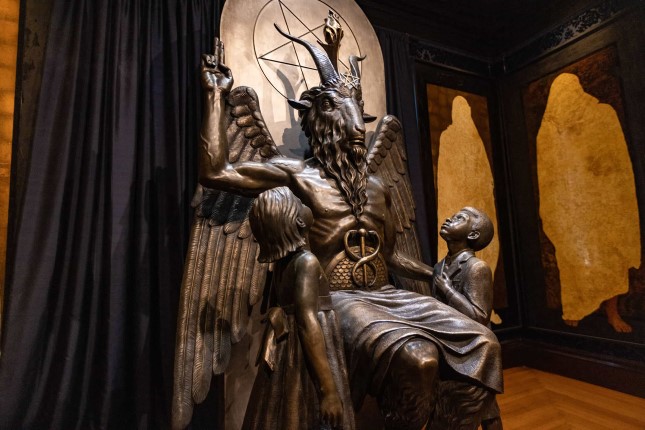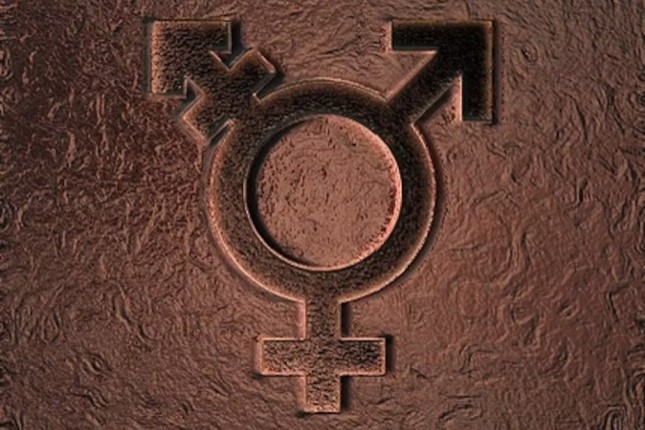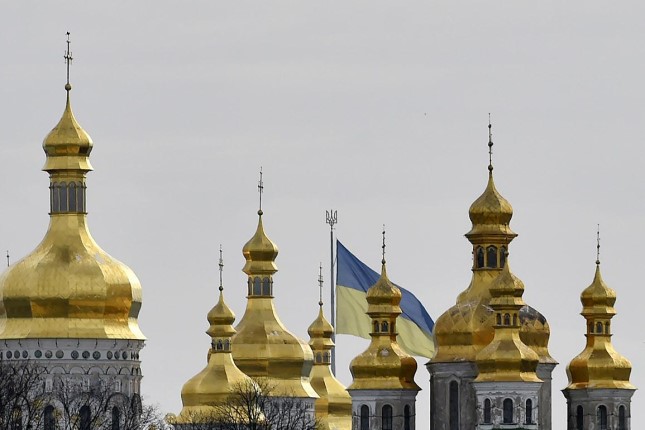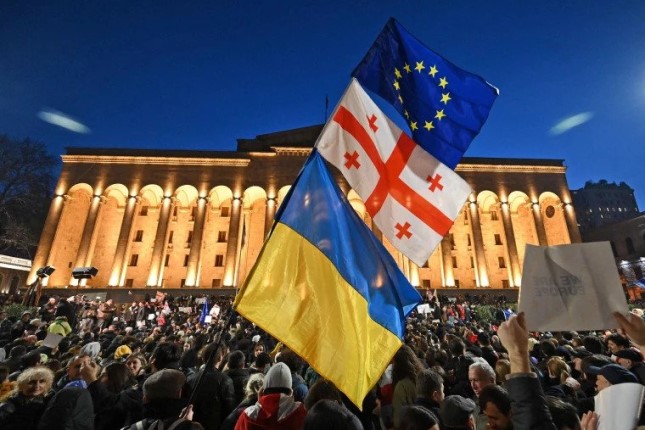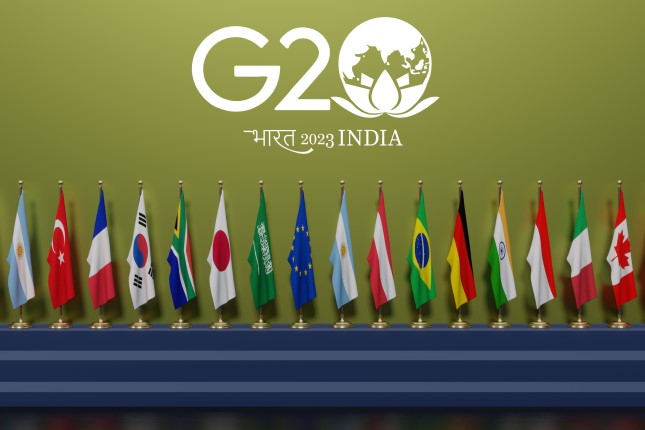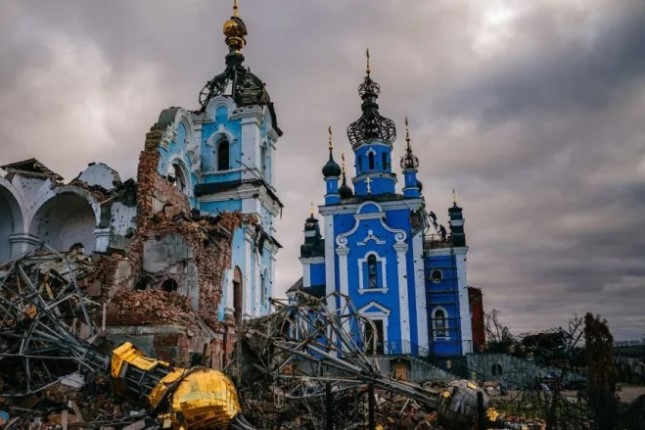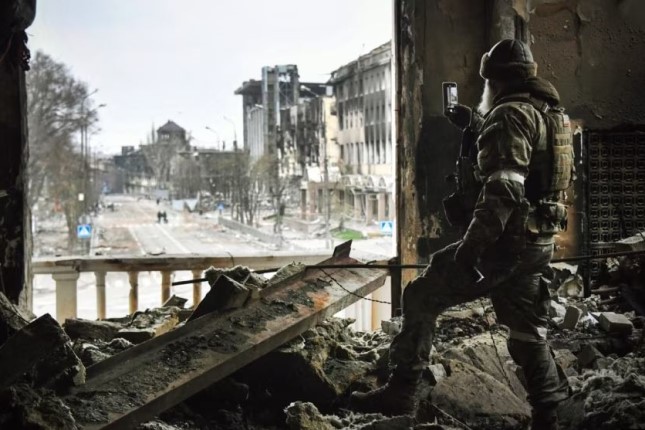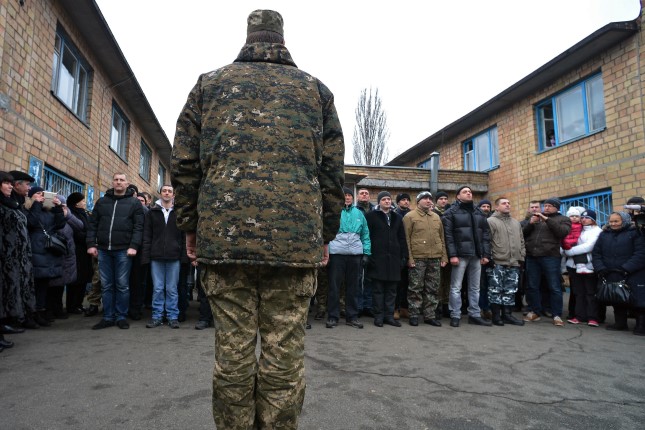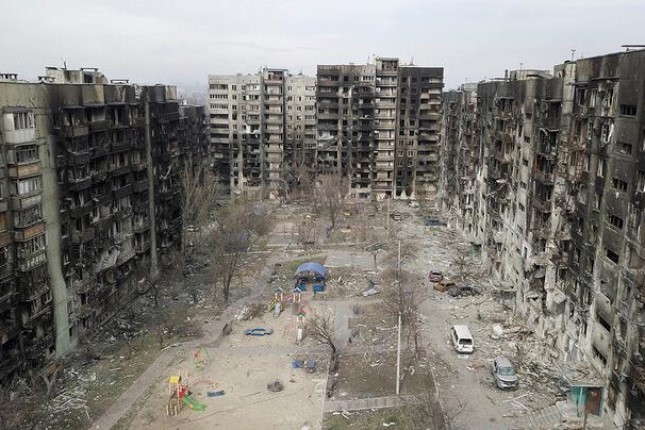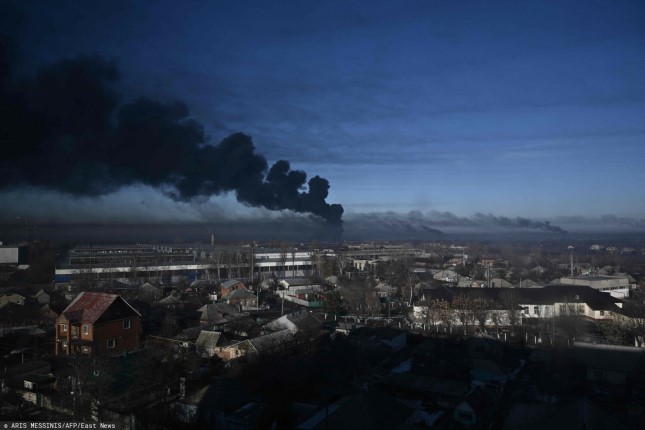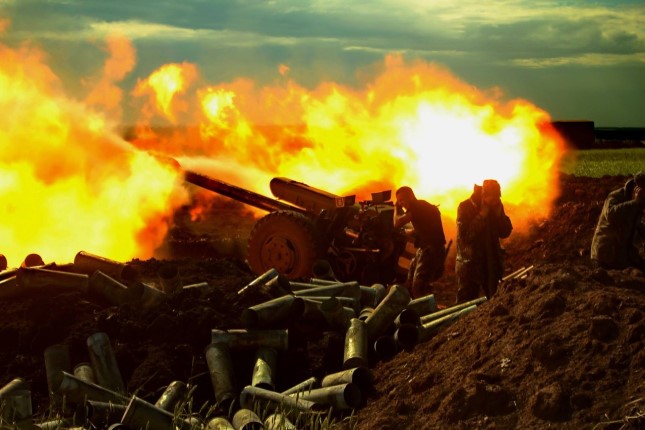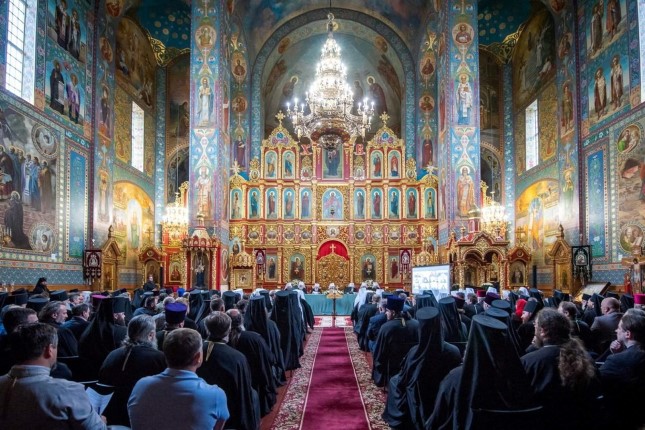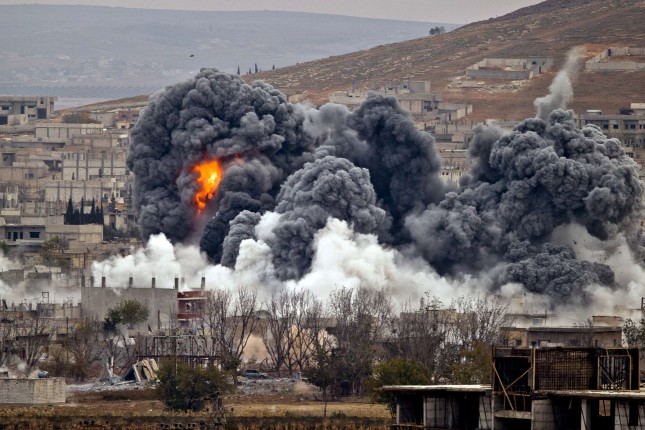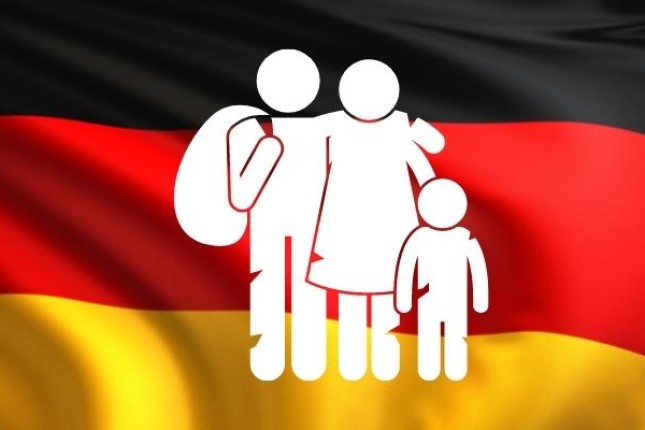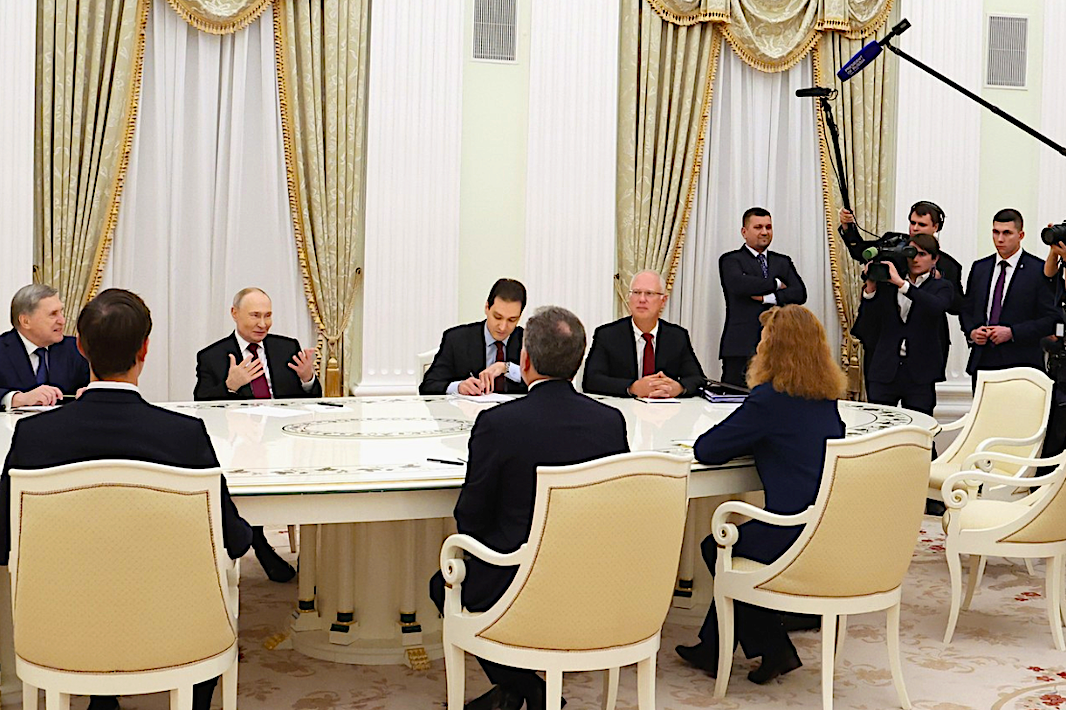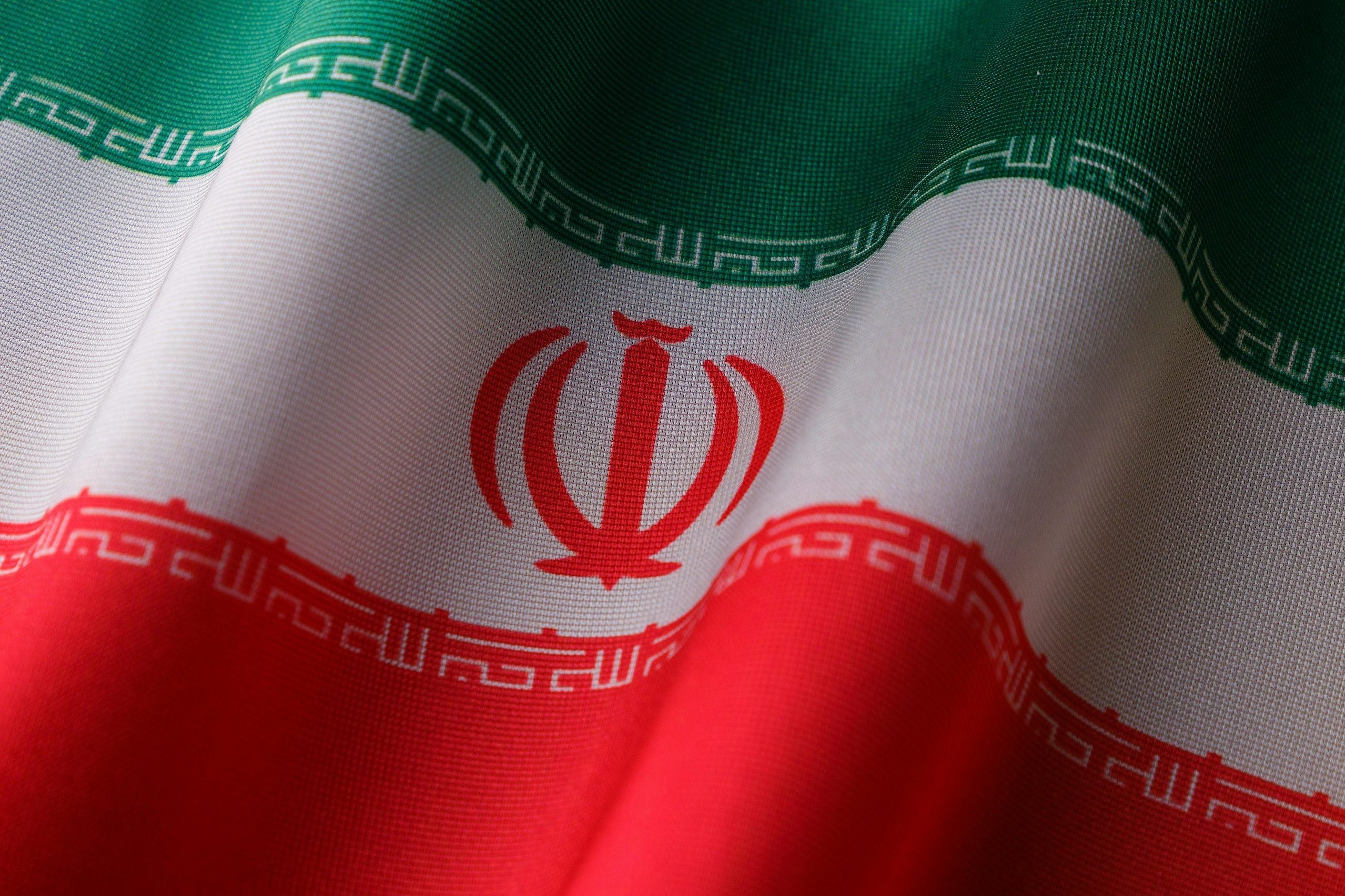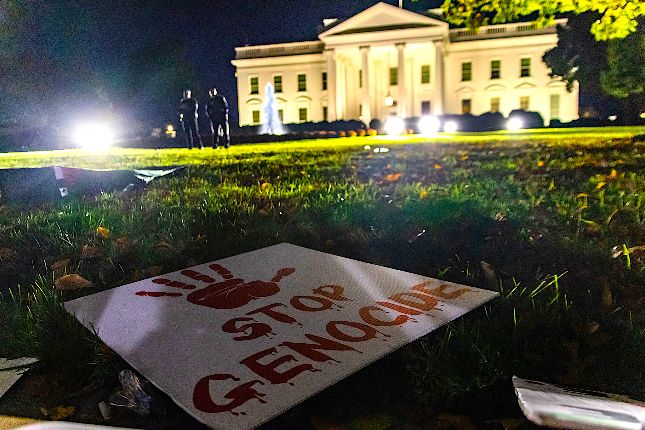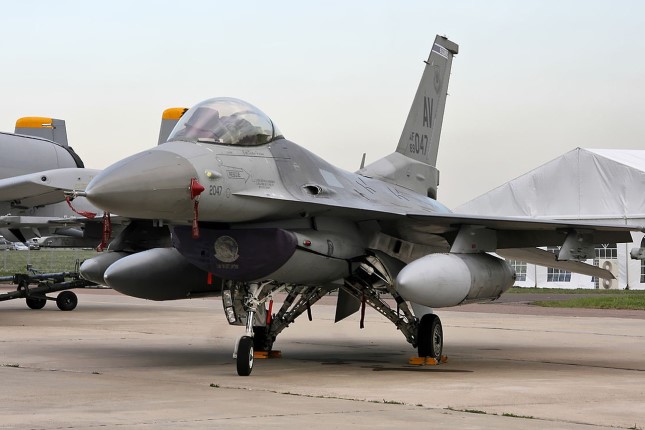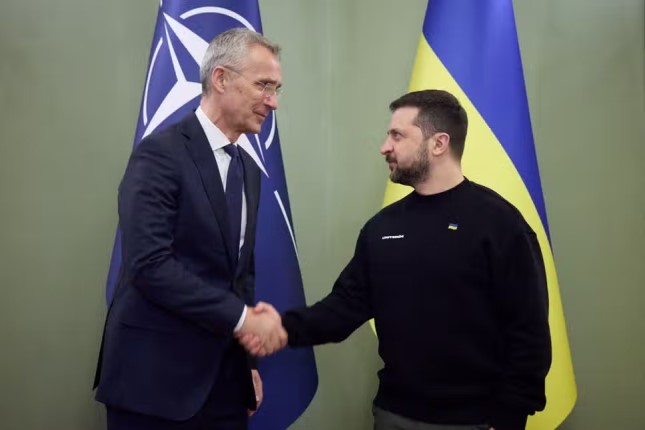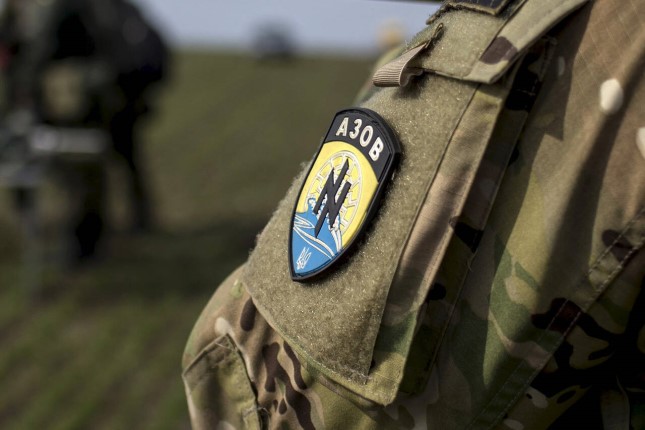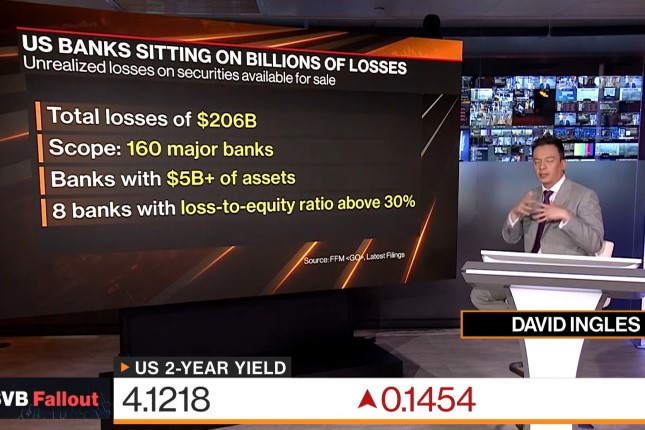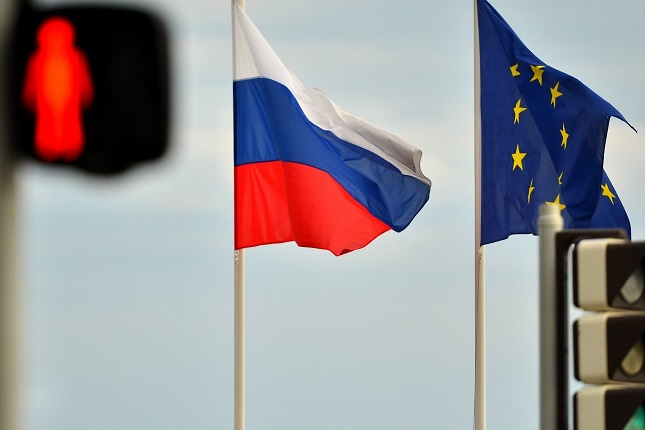Second Part. First Part: Operation "Realist": Reconnaissance.
By September, with a stalemate at the front and problems with the full implementation of the "grain deal", it became clear that there would be no quick political settlement. The parties are actively preparing for more intense hostilities.
The turning point was the explosion of the Nord Stream-1 and Nord Stream-2 gas pipelines. Officially, specific perpetrators or even suspects have not yet been named, which is quite unusual for Europe in such cases. Therefore, one can confidently say that the sabotage has become a signal that military and strategic issues have absolute priority for the West in the conflict in Ukraine. The fight is going to be serious.
Below is a list of thirteen main events of the second phase of the military campaign, and the conclusions that can be drawn based on them.
1. September. Sabotage at Nord Stream
The simultaneous destruction of both branches of Nord Stream-1 and one of the branches of Nord Stream-2 on the night of September 26 clearly indicates sabotage. Swedish investigators reported that they found traces of explosives in the area of the explosions at the bottom of the Baltic Sea. Sweden, Denmark and Germany refused to allow Russia into the investigation. The sabotage on the gas pipelines and the indistinct reaction to it revealed Europe's lack of military and political subjectivity and, above all, of Germany, whose economic interests suffered most of all. Given the destruction of Nord Stream and the energy crisis in the EU, Russian LNG exports to European countries began to grow. So, in 2022, LNG supplies from Russia to Spain increased by 45%. Spain, like Turkey, claims to become a new gas hub.
2. September. Edward Snowden received Russian citizenship
Washington has repeatedly and unambiguously made it clear to Moscow that it is ready to turn a blind eye to many things, including some of the Ukrainian issues, in exchange for the extradition of Snowden. Therefore, the granting of Russian citizenship to Snowden during the conflict in Ukraine was a very strong signal to the American side about Moscow's strategic position on the whole range of issues in bilateral relations.
3. September. Accession of four regions to the Russian Federation
After the referendums, Russia announced the accession of the territories of four regions – Donetsk, Lugansk, Zaporizhzhia and Kherson. The corresponding amendments were made to the Constitution of the Russian Federation. North Korea was the first country to recognise the entry of new subjects into the Russian Federation. Later, accusations began to be heard in Europe that North Korea supplies weapons and ammunition to Russia. Pyongyang denies these accusations. On October 12, the UN General Assembly, following a vote, condemned the referendums on independence in four former Ukrainian regions. 35 countries abstained from voting, including China, India, Kazakhstan, Pakistan, South Africa, Algeria, Vietnam and others (mainly Asian and African countries).
4. October. Partial mobilisation in Russia
The President made the decision on mobilisation on September 21, but the main activities for its implementation were almost completely within October. The mobilisation has become a very serious test for Russia's government machine. It revealed a huge number of failures in the work of the Defense Ministry. The mobilisation was accompanied by a whole series of scandals related to conflicts of the mobilised with officers, problems with the organisation, ammunition and training. It revealed the true level of support for the military campaign in Russian society and the efficiency level of the Defense Ministry. Nevertheless, in general, the mobilisation helped Russia to stabilise the situation at the front.
5. October. Terrorist attack on the Crimean bridge
The explosion on the Crimean bridge occurred on the morning of October 8, two weeks after the sabotage at the Nord Stream. Over 250 meters of the roadway collapsed. To date, traffic on the bridge has been restored in full. On October 8, Sergey Surovikin was appointed the new commander of the Joint Group of Russian Forces in Ukraine. The terrorist attack on the Crimean bridge served as a trigger for the Russian army to launch systematic strikes against Ukraine's energy infrastructure facilities.
6. October. OPEC+ cuts quotas
Oil-producing countries agreed to reduce oil production quotas by 2 million barrels. This happened despite persistent requests from the United States not to do so in the run-up to the congressional elections. The OPEC+ decision, in the context of an acute energy crisis and attempts to lower prices for Russian energy resources by non-market methods (price caps), showed how much the influence of Europe has fallen. OPEC+ has shown itself to be an alternative centre of economic influence. In many ways, the oil-producing countries were prompted by the decision to freeze Russian assets. Earlier, Iran and Venezuela suffered from similar measures, and the OPEC+ countries generally realise that with the deepening chronic crisis in the economies of developed countries, others are also not immune from such voluntaristic actions by Europe.
7. November. The UN Security Council did not adopt the resolution of the Russian Federation on the US military biolaboratories in Ukraine
The draft resolution proposed by Russia provided for the creation of a Security Council commission to investigate the activities of American biological laboratories in Ukraine. Russia and China voted in favour of the resolution, while the United States, Great Britain and France voted against. At the same time, the United States previously admitted at various levels that they were conducting biological research with military applications in Ukraine. So, in March, speaking at a hearing in the United States Senate Committee on Foreign Relations, US Deputy Secretary of State Victoria Nuland mentioned concerns of the American leadership that Russian troops might try to take control of American military biological laboratories (according to Russian sources, 30 such laboratories operated in Ukraine). And in September, at a meeting of the parties to the Convention on the Prohibition of Biological and Toxin Weapons, the United States admitted that it had conducted experiments on military personnel, poor and mentally ill Ukrainians.
8. November. Withdrawal of Russian troops from Kherson
Under the command of Sergei Surovikin, the Russian troops left the regional centre of Kherson and completely withdrew from the right bank of the Dnieper. The hard decision was prompted by problems with logistics, the approach of winter colds and the need to concentrate forces in other directions. Withdrawal from Kherson caused great disappointment in the patriotic circles in Russia, but subsequent events proved it was right. Even the Ukrainian side faced difficulties with maintaining the life of a large city during the winter, though it had no need to deliver goods across the Dnieper. And the advance of Russian troops in the Donbas also demonstrated the expediency of this decision from a purely military point of view.
9. December. Adoption of the UN General Assembly Resolution on combating the glorification of Nazism
On December 15, the UN General Assembly adopted a resolution "Combating glorification of Nazism, neo-Nazism and other practices that contribute to fuelling contemporary forms of racism, racial discrimination, xenophobia and related intolerance". 50 countries voted against the resolution. Although in the last six years, only the United States and Ukraine rejected the resolution, this time, many countries (mainly European) that usually abstained (about 50 countries) voted against it. Such a mass vote against this resolution, which is adopted annually, happened only in 2011 – at the peak of Western pressure, which tried to prevent Vladimir Putin from returning to the presidency. Then 24 countries disapproved of it.
10. January. Liberation of Soledar
The seizure of this city was a serious military success of the Russian troops and, above all, the Wagner PMC, whose fighters assumed the role of the main striking force in this direction of the Russian offensive against the Ukrainian positions. The fall of Soledar dramatically worsened the situation of the defenders in neighbouring Bakhmut – its surrender by Ukrainian forces is now becoming more and more likely. In fact, what is at stake is the breakthrough of a united, deeply echeloned defensive line from Sloviansk to Avdiivka constructed by Kyiv for many years.
11. January. Germany sends Leopard 2
After much hesitation, Germany decided to send one armour company of 14 Leopard 2 tanks in the most modern A6 modification to Kyiv, and also allowed the re-export of Leopard 2 tanks from third countries. Until recently, the German authorities did not want to transfer military vehicles to Kyiv in order to avoid a possible conflict with Russia, but the United States and Britain were still able to push through the solution they needed. The supply of tanks has long been presented in the media as a kind of fundamental step. However, almost immediately after the decision on the supply of Leopard 2 was made, there was talk that Kyiv should also be provided with long-range offensive weapons (missiles with a range of about 300 km and combat aircrafts). Their delivery will almost inevitably cause a qualitative escalation of the conflict.
12. February. Scandal around the terrorist attack on the Nord Stream
The American journalist, Pulitzer Prize winner Seymour Hersh published an article on his blog on the Substack platform that the sabotage of Nord Stream was organised and carried out by the United States with the help of the Norwegian military. US divers placed explosives under NS-1 and NS-2 during the NATO exercise Baltops in the summer of 2022, and three months later, the devices were activated after a Norwegian military aircraft dropped a sonobuoy into the sea, transmitting a special coded signal. Hersh's material essentially confirmed that the United States implemented the threat of President Joe Biden, which he made on February 7, 2022, following negotiations with German Chancellor Olaf Scholz. "If Russia invades, that means tanks and troops cross the border of Ukraine again, then there will be no more Nord Stream 2. We will bring an end to it. I promise we'll be able to do that," Biden said.
13. February. Russia, for the first time, used a marine underwater drone
With the help of a drone, the bridge over the Zatoka in the Odesa region was hit, through which the Ukrainian army is supplied with ammunition and equipment. The Russian military did not report that it possessed such devices and used them during the war. The nature of the operation, in the context of the scandal around the US-organised terrorist attack on the Nord Streams, shows Russia's ability and readiness to respond to the escalation of arms supplies to Ukraine by non-obvious means.
The situation around Ukraine has changed fundamentally in the year since the beginning of the military campaign. Having passed two stages – reconnaissance by combat with a real probability of reaching political agreements in the first six months and full–scale military operations in the spirit of WWII in the second six months - the situation around Ukraine has reached the level of emerging global confrontation with an increasing risk of direct military clash between Russia and the United States.
On the one hand, the military and political alliance between Russia, Iran and North Korea has clearly taken shape. Moreover, it turned out that the cooperation of these three countries in the face of a potential common enemy fundamentally changes the balance of power in several regions key for the United States. Moreover, there are more and more signs that a closer alliance between Russia and China is emerging. And here, it's not just about the belligerent position of the United States. The aggressive behaviour of the EU has played an even greater role in changing China's attitude. Until recently, Beijing hoped there were sound forces in Europe, in partnership with which it could try to revive globalisation. And Beijing saw Europe as such a force.
However, here, for example, is the statement of the head of EU diplomacy Josep Borrel: "Russia is a great country, a great nation that is used to fighting to the end, almost losing and then recovering. They did it with Napoleon; they did it with Hitler. It would be absurd to think that Russia has lost the war or that its military is incompetent." Comparing Russia's victories over the German Nazis and the French of the time of Napoleon, Borrel added that "it is necessary to continue arming Ukraine" - that is, in fact, to repeat what Hitler and Napoleon did against Russia.
Earlier, Borrel compared the whole world to the "jungle" that surrounds the "garden" in Europe. And when his statement became public, he had to apologise for this comparison.
These and similar statements by European politicians could not but affect the position of China. Beijing realised that they were dealing with the very West that had been pursuing a colonial policy towards China for many decades. That there is no "new Europe" with which equal relations are possible, and the only thing that restrains its colonial instincts is the presence of strategic opposition from Russia.
On the other hand, the diplomatic milieu, which used to mitigate the contradictions somehow, continued to deteriorate. Thus, Russia refused Switzerland's mediation to represent the interests of Ukraine, because it supported anti-Russian sanctions. De facto, Russia no longer recognises Switzerland's neutral status, which marks the end of an era since 1815. Another example: Russia has closed for itself the issue of a peace treaty with Japan and sees no point in continuing negotiations on this topic.
Relations between Russia and Europe have come to a dangerous point. The new configuration of the global confrontation is emerging so quickly that the risk of a direct military conflict between Russia and the United States becomes quite real. This is evidenced by the recent call of the US State Department for American citizens not to travel to Russia and Belarus, or to leave them immediately. Against the background of this call, Russia's Foreign Intelligence Service made a statement that the US military is hastily recruiting and training militants of the Islamic State and Al-Qaeda (both organisations are banned in Russia) at the Et-Tanf base in Syria to carry out terrorist attacks in Russia and CIS countries.
